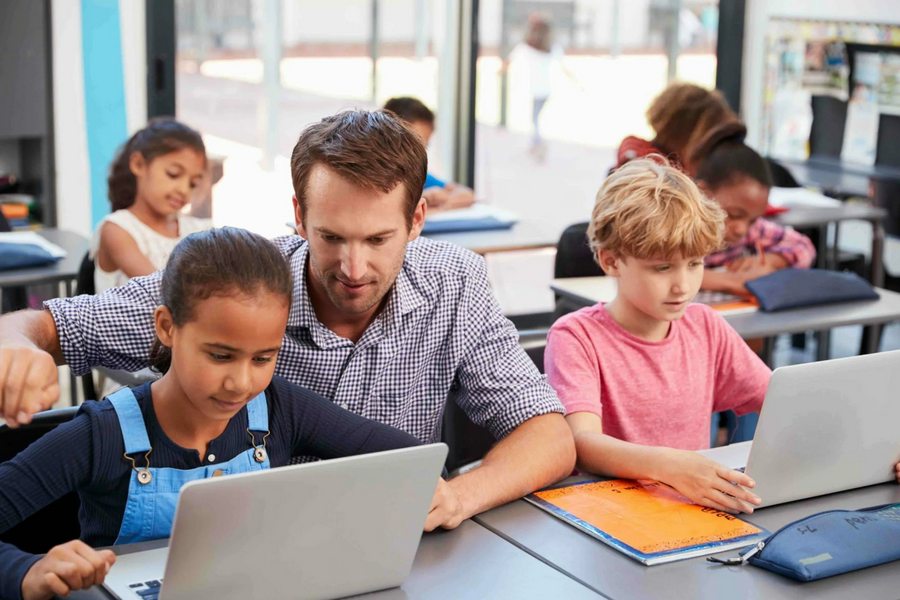Education in Dubai and the UAE is evolving, focusing on modern, interactive teaching methods that engage students and help them develop important 21st-century skills. One of the most promising approaches is social learning, which involves students working together to solve problems and share knowledge. Ajman Indian International School, located in Ajman, United Arab Emirates, is at the forefront of this trend, offering a range of social learning experiences for its students.
What Is Social Learning Theory in Education?
Social learning hypothesis in schooling is a hypothesis that proposes that people learn new ways of behaving and mentalities by noticing and mirroring others around them. This hypothesis depends on the possibility that people gain from the encounters of others as opposed to from their own encounters alone. With regards to instruction, this implies that understudies can gain from noticing the ways of behaving and mentalities of their friends and instructors and can then apply what they have figured out how to their own lives.
The social learning hypothesis has been generally examined and applied in many fields, including brain research, social science, and schooling. In training, it is frequently used to make sense of how understudies gain from noticing and copying the ways of behaving of others in the homeroom and what this can mean for their scholastic exhibition and social turn of events.
How Does the Social Learning Theory Work?
The social learning process can be divided into four steps: observation, retention, reproduction, and motivation.
1. Perception
The most vital phase in the social growing experience is perception. This includes focusing on the ways of behaving and mentalities of others and observing the results of those ways of behaving and perspectives.
2. Retention
The subsequent step is retention, which includes putting away the data seen in the most vital phase of memory. This can include cognizant and oblivious cycles, contingent upon the individual and the circumstance.
3. Proliferation
The third step is proliferation, which includes utilizing the data put away in memory to play out the way of behaving or take on the noticed mentality. This can include physical and mental cycles, contingent upon the learned way of behaving or disposition.
4. Inspiration
The last step is inspiration, which includes the singular’s ability to play out the way of behaving or take on the noticed mentality. This can be affected by different elements, including the singular’s objectives and values, the outcomes of the way of behaving or demeanor, and the normal practices and assumptions for the circumstance.
Overall, the social and educational experience includes people effectively taking part in their advancing by noticing and mimicking others and utilizing this data to illuminate their way of behaving and mentalities. This interaction can be affected by different variables, including the singular’s objectives and inspirations, the normal practices and assumptions for the circumstance, and the results of the way of behaving or mentality being learned.
How Can Students Benefit from Social Learning?
There are many benefits of social learning for students, including:
1. Creating significant 21st-century abilities
By cooperating in a social learning climate, understudies can foster decisive reasoning, critical thinking, joint effort, and relational abilities, which are fundamental for progress in the present worldwide economy.
2. Advancing comprehensiveness and variety
In a social learning climate, understudies figure out how to regard and esteem the points of view of others, no matter what their experience or capacity. This assists with making a more comprehensive and inviting homeroom where all understudies feel open to participating and contributing.
3. Empowering dynamic learning
Social learning is a functioning learning approach, implying that understudies are not detached beneficiaries of the data. All things being equal, they are effectively engaged with their learning and can impact their opportunities for growth by noticing and copying others
4. Supporting social turn of events
Social learning open doors, like clubs and groups, can assist understudies with creating significant interactive abilities, like authority, cooperation, and compromise. These abilities are fundamental for outcomes in both academic and individual settings.
5. Upgrading scholastic execution
Research has shown that understudies who partake in friendly growth opportunities have higher scholastic accomplishments than people who don’t. This is because social learning assists understudies with fostering the abilities and information they need to prevail in school.
Conclusion
In conclusion, the social learning theory is a promising approach to education in the UAE, and Ajman Indian International School is at the forefront of this trend. By offering a range of social learning experiences, Indian schools help students develop important 21st-century skills, encourages inclusiveness and diversity, supports social development, and enhances academic performance. If you’re looking for a school to help your child reach their fullest potential, Ajman Indian International School is a perfect choice. Enroll your kids today and watch them thrive in a supportive, social learning environment.

I serve as a financial expert on the Today Show and Good Morning, America. I like to give reasonable advice on budgeting to people with any income level.
